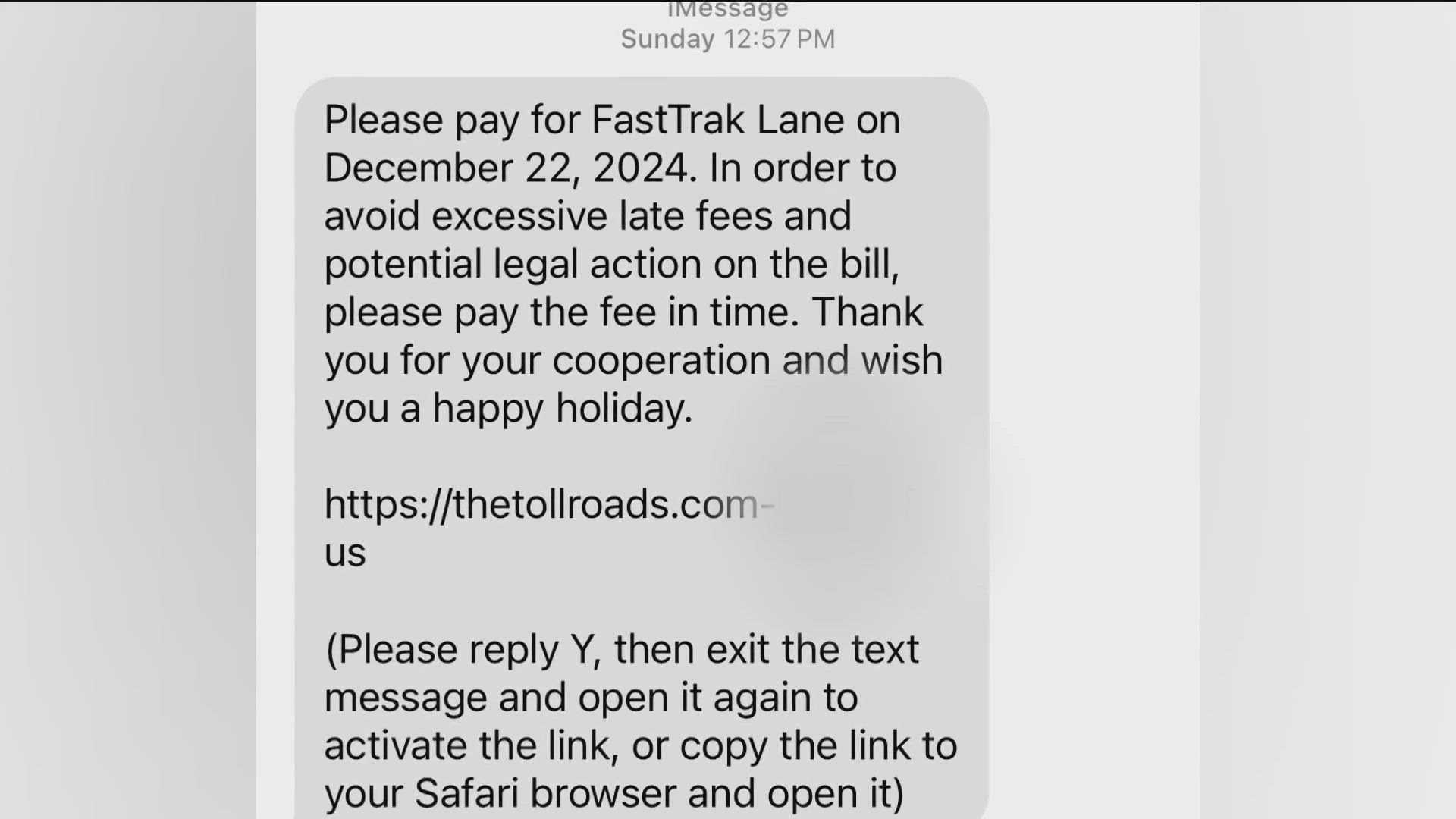News
Nationwide Toll Payment Scam Targets Americans via Text Messages

WASHINGTON, D.C. — The FBI has issued a warning about a surge in toll payment scams targeting Americans through deceptive text messages. These communications, falsely claiming unpaid tolls, are aimed at stealing personal and financial information from vulnerable recipients.
Scammers are sending messages stating that the recipient owes money for unpaid tolls, coupled with a link to a fraudulent website designed to capture sensitive data. These texts create a false sense of urgency, prompting victims to click on embedded payment links that redirect them to phishing sites.
Reports of such scams have been documented across multiple states, including Massachusetts, California, Florida, Illinois, and the Carolinas. The Federal Trade Commission (FTC) noted that these scams have grown more prevalent, particularly within the fast-expanding toll payment environment, which saw $8.8 billion stolen in 2022 due to various forms of fraud.
The FasTrak toll system in California is among the most targeted platforms, with criminals posing as the official service and threatening drivers with fines or license suspensions if they do not settle alleged outstanding tolls by a specified date. In a recent advisory, the FBI stated, “Citizens should report any suspicious texts that claim they owe money for unpaid tolls. The language used is often nearly identical across texts, regardless of the supposed issuing state.”
In response to the growing number of scams, the FBI urges individuals to verify their toll account balances through official channels. “Check your account using the toll service’s legitimate website or contact the customer service number directly,” the agency added.
Experts warn that the authenticity of these scam messages often makes them difficult to identify. Alex Beene, a financial literacy instructor at the University of Tennessee at Martin, emphasized, “The wording in these texts can sound very legitimate, often including specific details like unpaid amounts and deadlines, which encourages immediate compliance.”
Digital security authority Efrat Tabibi noted that as toll fees rise to fund infrastructure improvements, the frequency of associated scams has also surged. “Scammers are capitalizing on genuine toll transactions to craft realistic but fraudulent messages to deceive individuals,” Tabibi stated.
Federal and state authorities are actively working to educate the public through awareness campaigns. The Oklahoma Turnpike Authority has joined this effort, advising residents to exercise caution and report any suspicious texts, which often have unclear URLs and misspelled service names.
While individuals have been warned about these scams, local governments have also communicated alerts. The city of Great Falls, Montana, recently advised residents that an outstanding toll scam targeting them is not legitimate, given that Montana lacks toll roads. “If you receive such a message, please do not click any links,” the city cautioned.
The FTC’s guidance stresses the importance of being vigilant against unsolicited texts. “Don’t click any links in, or respond to, unexpected texts. Scammers aim for quick reactions, but taking the time to verify messages can prevent financial loss,” the FTC recommends.
As the threat of toll scam messages continues to escalate, cybersecurity experts like Chris Krebs suggest that these phishing attacks may be linked to international criminal syndicates. Krebs highlighted the role of Chinese cybercriminals who may be marketing SMS phishing kits targeting toll systems across the U.S. Keller commented, “Multiple China-based cybercriminals are actively selling sophisticated phishing kits that allow scammers to spoof official toll operators easily.”
The FBI encourages individuals to monitor their financial accounts regularly and to dispute any unfamiliar charges that may arise from these scams.












